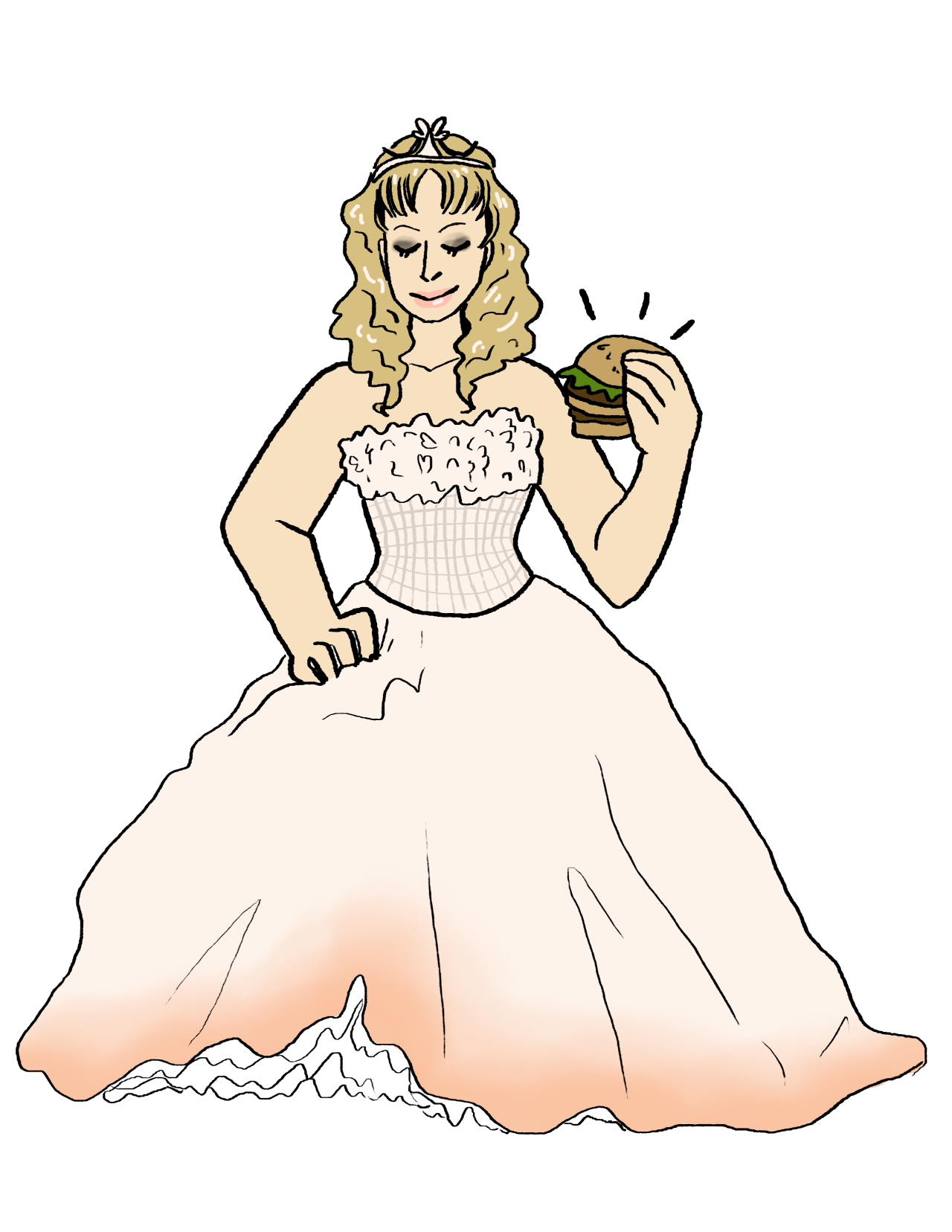Illustration by Ren Rader
The worst thing I thought I could be as a young girl was like other girls. Movies and television taught me over and over again that being “not like the other girls” was a good thing and that we should deliberately strive toward that.
The girls who were “not like the others” were quirky in a cute way, did not like makeup but were conventionally attractive; they liked sports and cars but hated drama and shopping. Those who were lucky enough to achieve this status could be desirable, and were often the love interest.
The problem here is first and foremost that we were rarely, if ever, shown a film where the female protagonist was not the love interest of a man before she was anything else. Every role I saw women in was one where they were vying for men’s attention as their primary goal.
This essentially says to young girls that they must never be satisfied unless they have earned male attention; then we’re taught that in order to receive said male attention, we must have all these traits that make us unlike other girls, as if painting our nails and being able to change a tire are mutually exclusive categories.
Women are even tested in these movies to verify their status. This is why Austin Ames in “A Cinderella Story” asks Sam if she would rather eat a Big Mac or a salad. First of all, huh? We’re supposed to be so impressed that Hillary Duff’s character can be blonde, skinny and soft-spoken but also … like burgers.
I think this whole phenomenon is extremely harmful to women and plays a huge role in promoting stereotypical gender roles. Not to mention, this trope only acknowledges a very strict and confining gender binary, which pressures young people especially to fit into heteronormative and cis-normative ideals of relationships and romance. Traditionally feminine or “girly” traits (which are forced on us since birth), are put down and deemed negative in place of traditionally masculine traits, or “tomboy” status.
To not be like the other girls is always illustrated as a compliment, so girls desire more than anything to be not like the others. This is why it was so cool in middle school to have mostly guy friends. We saw the women in the films we watched be desired if they were “one of the boys,” so we were taught not to like other girls our age in order to get “cool” points.
Once we get older, I think we start to realize that this “compliment” isn’t really a compliment at all, it’s a tool to put down other women. Regardless, it is hard to get away from this stereotype. I would love to say that rom-coms hold all the blame, however, I recently found that this “not like the other girls” trope manifests itself even in films which celebrate women.
For example, in “Little Women,” everyone wants to be Jo March and no one wants to be Amy March, many people even hate her. Jo is the writer who cares much more about her work than her appearance and does not want to marry at all, while Amy is the “annoying little sister” who knows from a young age she must be pretty and wear nice clothes in order to marry rich.
I am not sure how necessary it is for me to defend a fictional character, but I think Amy is so widely hated, in large part, because she is supposed to be “like other girls.” Even though putting her dreams on the back burner to marry rich was the most sensible thing to do at the time.
All this to say that we should start to recognize these tropes in film and TV more often and find ways to combat them. We should stop encouraging young girls to be unlike “other girls” solely for the affection of guys because it only implies that “other girls” (ie: most of them) are undesirable and less valuable, and that the “others” are one, singular entity, which is simply not true.







